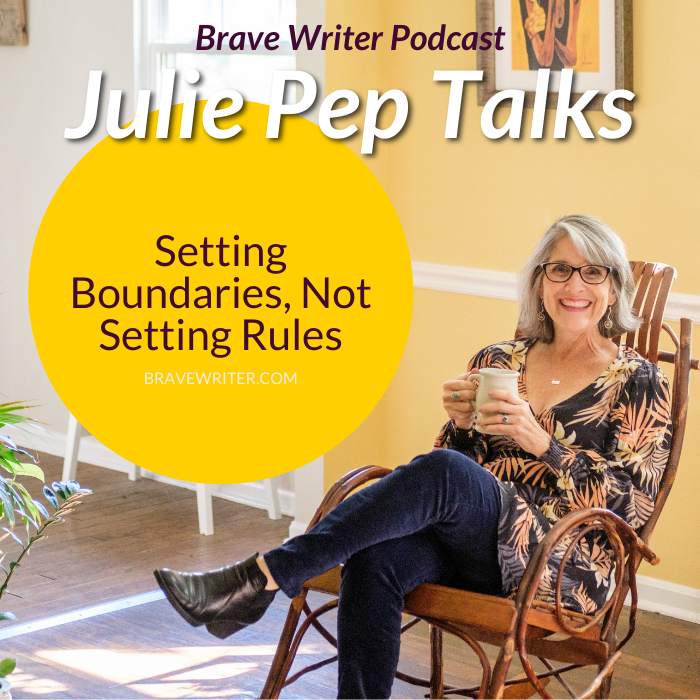Podcast: Setting Boundaries, Not Setting Rules

Welcome to the first episode of a new segment I’m calling “Julie Pep Talks,” where I narrow in on one particular topic and give you my thoughts about it and suggestions you can quickly put into practice. Today’s topic is all about setting boundaries, not setting rules.
At the start of a new year, we’re often coming from the combined high of family gatherings, as well as the residual resentment that can come when your closest relatives push your buttons in all the wrong ways. Couple that with the cultural expectation to reform our lives in the form of new year’s resolutions of the year and it makes sense that we’d look at our mental welfare and engage in some relationship hygiene. That means setting the boundaries necessary to have a good relationship with the people in your life.
Let’s explore what it actually means to set boundaries, and why, sometimes, what you think is a boundary is actually a rule. The distinction matters.
Show Notes
There is a famous quote from the book Codependent No More by Melody Beattie that says, “You cannot set a boundary and take care of someone’s feelings at the same time.” What I’ve seen happen in the name of boundaries is often just more sophisticated, codependent behavior and manipulation. There’s a temptation to pretend we’re setting a boundary when we’re actually setting a rule. A rule is meant to enforce the behavior of others, while a boundary is meant to protect your own emotional energy.
When dealing with behavior you don’t approve of in others, you have a few options available:
- pretend there isn’t a problem and cooperate,
- set personal boundaries,
- or set rules.
Rules are about what other people do, but we have no control over the behavior of others.
Imagine dealing with an alcoholic. You can set the rule that you do not allow alcohol in your house, but that relies on the other person to follow that rule and adhere to it. Instead, you could set the boundary that you will not buy alcohol for them. That’s something that you have complete control over.
It’s hard to set boundaries because we often feel as if we are losing something: a relationship, control, revenue, respect, or something else. How does this apply to homeschooling? Think about the child who doesn’t want to learn math. You can set a boundary that, if you’re going to help with schoolwork, then they need to have a good attitude, follow through, and do the work. But that’s actually a rule – and it’s one that you’ll have to enforce because the child is really the one in control.
So what do you do instead? Your boundary could be that, when you show up positive and motivated to give your child a good learning experience, and they show up without a good attitude, you can get up from that table and walk away. It’s not about their performance but the kind of life you want to live.
A boundary is not about the other person. It is about what you need to ensure your emotional wellbeing. Think about how you are being codependent in your relationship with your child, and how you can set boundaries that protect your own mental health.
Resources
- Want help getting started with Brave Writer? Head over to bravewriter.com/getting-started
- Sign up for the Brave Writer newsletter to learn about all of the special offers we’re doing in 2021 and you’ll get a free seven-day Writing Blitz guide just for signing up: http://go.bravewriter.com/writing-blitz
Connect with Julie
- Instagram: instagram.com/juliebravewriter
- Twitter: twitter.com/bravewriter
- Facebook: facebook.com/bravewriter
Tags: Julie Pep Talks


















